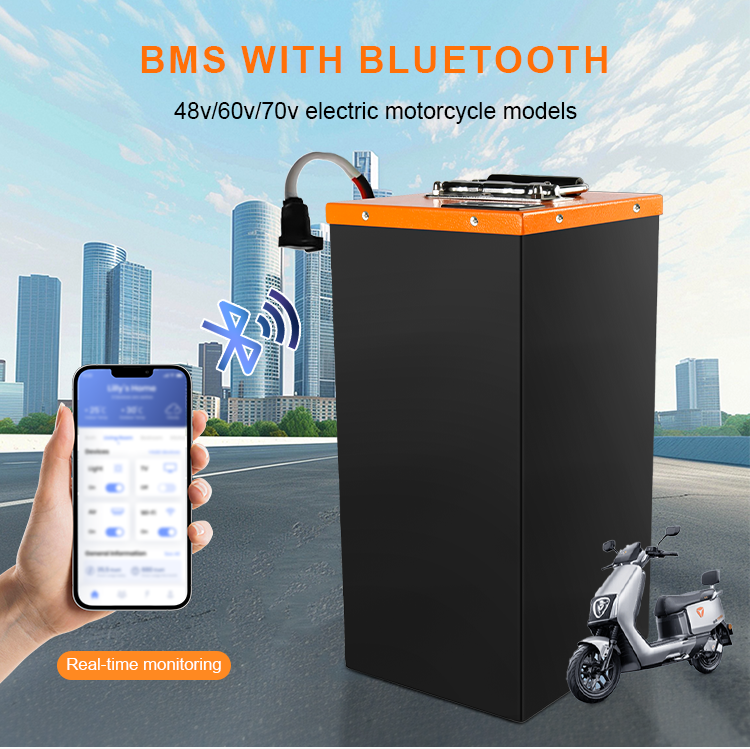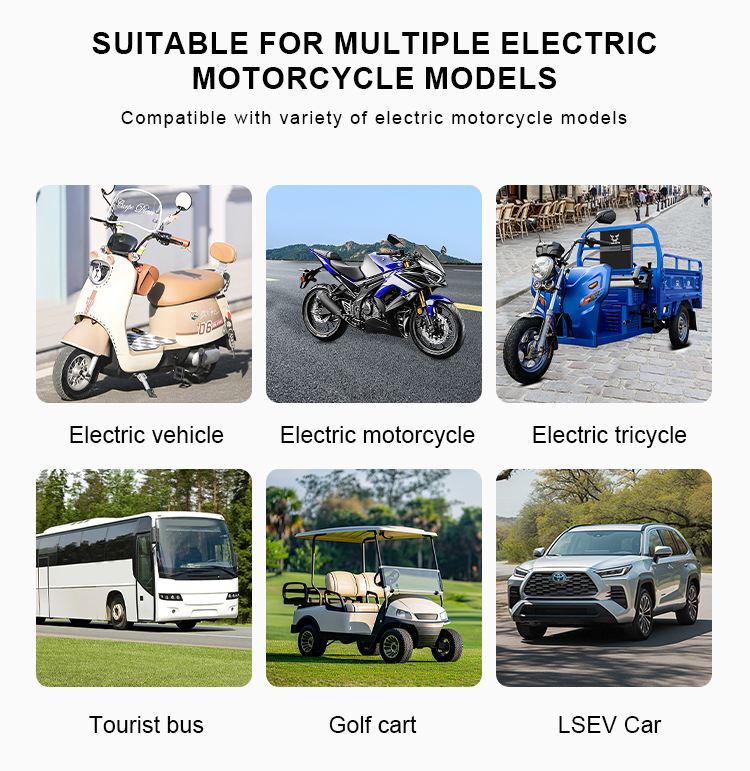Here’s a detailed breakdown of a 72V 40Ah battery system, covering its specifications, performance, applications, and key considerations:
1. Voltage (72V)
-
Higher voltage than 48V/60V systems, common in performance-oriented electric vehicles (e.g., e-motorcycles, high-power scooters, or custom EVs).
-
Advantages:
-
More efficient power delivery (less current for the same wattage = reduced heat loss).
-
Enables higher top speeds and acceleration.
-
 2. Capacity (40Ah)
2. Capacity (40Ah)
-
Amp-hours (Ah) = Charge capacity.
-
Can deliver 40A for 1 hour, 20A for 2 hours, etc.
-
-
Combines with voltage to determine total energy storage.
3. Energy (Watt-hours, Wh)
-
Calculation:
72�×40�ℎ=2,880�ℎ( 2.88 kWh)
-
Context:
-
Equivalent to running a 1,000W appliance for 2.88 hours.
-
For EVs, this translates to longer range or higher power output.
-
4. Range Estimation (for EVs)
-
Depends on motor power:
-
Example 1: 3,000W (72V × ~42A) e-motorcycle:
2,880�ℎ3,000�=0.96 hours( 58 mins at full throttle)
At 80 km/h (50 mph), theoretical range ≈ 77 km (48 miles).
-
Example 2: 1,500W scooter: ~120–150 km (75–93 miles) under conservative riding.
-
-
Real-world range: 30–50% less due to hills, wind, and battery inefficiencies.

5. Battery Type
-
Lithium-ion (Li-ion/LiFePO4):
-
Preferred for high-power apps (lightweight, 2,000+ cycles).
-
Weight: ~20–25 kg (44–55 lbs).
-
-
Lead-acid:
-
Rare for 72V 40Ah (extremely heavy: ~50–60 kg / 110–132 lbs).
-
6. Charging Time
-
Standard 5A charger:
40�ℎ5�=8 hours.
-
Fast charging (10A): ~4 hours (may reduce battery lifespan).
7. Applications
-
High-performance EVs: E-motorcycles, electric dirt bikes, or custom builds.
-
Commercial/Utility: Heavy-duty scooters, small electric cars, or industrial equipment.
-
Solar storage: Off-grid systems needing high voltage.
8. Price Range
-
Lithium-ion: $350–$500 (depends on cell quality, BMS, brand).
-
Lead-acid: $200–$350 (bulky and short-lived).

9. Key Considerations
-
Motor/Controller Compatibility: Ensure your system supports 72V.
-
Battery Management System (BMS): Critical for safety and longevity.
-
Regulations: Some regions restrict high-voltage EVs on public roads.
Comparison with 48V 40Ah
| Feature | 72V 40Ah | 48V 40Ah |
|---|---|---|
| Energy | 2,880Wh | 1,920Wh |
| Power | Higher speed/torque | Moderate performance |
| Weight | Slightly heavier | Lighter |
| Cost | More expensive | More affordable |
Need Help?
Let me know if you’d like:
-
A range estimate for your specific motor.
-
Advice on battery chemistry (Li-ion vs. LiFePO4).
-
Wiring/configuration tips for 72V systems

 1688
1688


